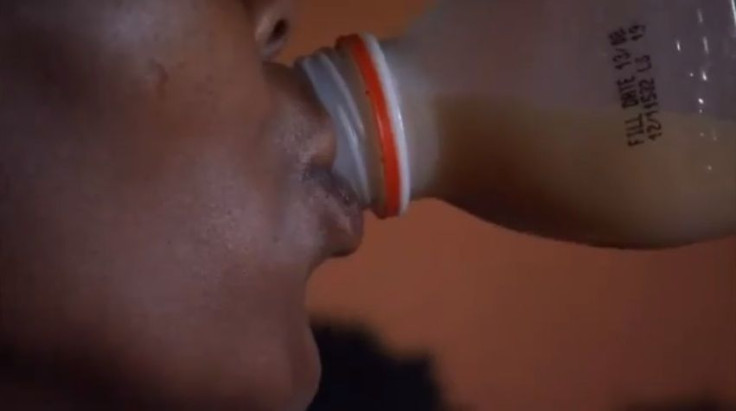Why Pregnant South Africans Deliberately Binge Drink to Harm Their Unborn Babies

A growing number of pregnant South African women living in the country's most impoverished neighborhoods are deliberately drinking large quantities of alcohol to harm their unborn babies in a bid to claim higher welfare payments.
Sky News reports that expectant mothers living in the Eastern Cape, one of the most poverty-stricken areas in South Africa are chugging large amounts of a "moonshine" type drink that contains battery acid, with some pregnant women drinking up to five and six bottles a day.
It has been claimed that pregnant women binge drink so they can use their soon-to-be-born disabled children as a source of income by claiming disability checks from the government.
A video clip taken by Sky News shows a heavily pregnant woman gulping down a type of homemade alcoholic drink called 'kah-kah'.
"If I don't drink this, I'm like someone who is sick," one woman told Sky News reporters.
"I can't sleep and I can't think straight but when I have this then I am better and I can do anything," she said.
'Kah-kah' is sold in illegal drinking dens called 'shebeens'. The addictive cloudy, light brown brew is a mixture of yeast, water and battery acid.
Police often raid 'shebeen' houses and shut them down. However, as soon as one shop closes, another one opens just as quickly.
Women who drink heavily during pregnancy are significantly more likely to give birth to children with Fetal Alcohol Spectrum Disorder (FASD).
Children suffering from FASD are born with characteristic physical and mental abnormalities, including short stature, and small head and brain, according to the World Health Organization (WHO).
FASD has no cure and patients often suffer lifelong disabilities that include learning difficulties, behavioral problems, language, delayed social or motor skills, impaired memory and attention deficits.
WHO reports that South Africa has the highest number of FASD cases in the world since 2002, and the number is growing, and the syndrome continues to be the most common birth defect in the country.
WHO reports that since, 2002, there has been a surge in the number of babies born with FASD in South Africa's Eastern Cape area.
Every month, the South African government gives families 250 South African rand ($29) for every child, but families of disabled children receive more than four times more the amount at 1200 rand ($140) a month.
Experts say that in some of the South African farming communities, heavy drinking party stems from the four-century-old practice of giving slaves and their children alcohol as compensation and to keep them captive through addiction.
The woman filmed by Sky News said that she drank between "five to six bottles a day" and her ritual binge drinking would start from nine in the morning.



























